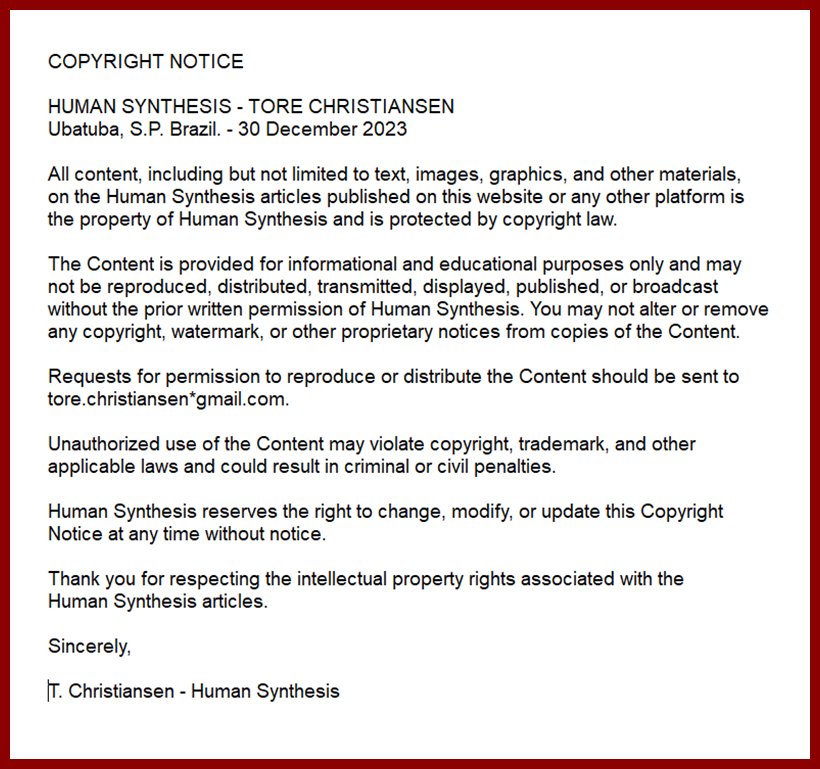NATO Proposes $100Billion, 5-Year Fund For Ukraine


By ZeroHedge - TYLER DURDEN - THURSDAY, APR 04, 2024
Hungary Vows To Thwart NATO's Proposed $100BN, 5-Year Fund For Ukraine
NATO members have agreed to begin planning military support for Ukraine on a long-terms basis, in but the latest indicator assuring both escalation with Russia and that the war will drag on for possibly years more to come.
On Wednesday NATO Secretary-General Jens Stoltenberg announced that allies have "agreed to move forward with planning for a greater NATO role in coordinating security assistance and training." But it will still be an uphill battle to get some of the 'outlier' members on board.
He also said that Ukraine's government and military still has "urgent needs" and that "any delay in providing support has consequences on the battlefield as we speak."
"We must ensure reliable and predictable security assistance to Ukraine for the long haul so that we rely less on the voluntary contributions and more on NATO commitments, less on short-term offers and more on multiyear pledges," Stoltenberg said. "The reason why we do this is the situation on the battlefield in Ukraine. It is serious … We see how Russia is pushing, and we see how they try to win this war by just waiting us out."
Stoltenberg's words come the day after he unveiled a $100 billion, five-year fund for Ukraine which he subsequently pitched to alliance foreign ministers as they met Wednesday.
It is meant to both close the gap after Biden's proposed $60 billion has been stymied by Republicans in US Congress, and in future expectation of a possible Trump victory after November.
Stoltenberg said a final decision on the $100 billion fund would be made at a July summit of NATO member state leaders; however, the big hurdle will be achieving the required consensus among the 32 members,
Hungary has already announced its "opposition to increasing NATO’s coordination role in arms deliveries and training Ukrainian forces, refusing to participate in planning, operations, or funding," according to a foreign ministry statement.
Thus Brussels is in for yet another fight with its wayward Hungarian member state led by Viktor Orban, who has time and again vowed to reject any measure which could pave a path of escalation to WW3 with Russia.
But Stoltenberg is already seeking to calm Budapest's fears and bring it on board. "What we are discussing is not a NATO combat presence in Ukraine. We are discussing how we can coordinate and deliver support from outside Ukraine to Ukraine as NATO allies do," Stoltenberg said. "And now when we initiate planning, I’m certain we can also address the concerns that Hungary has raised and find a way where we can have consensus."
NATO members have agreed to begin planning military support for Ukraine on a long-terms basis, in but the latest indicator assuring both escalation with Russia and that the war will drag on for possibly years more to come.
On Wednesday NATO Secretary-General Jens Stoltenberg announced that allies have "agreed to move forward with planning for a greater NATO role in coordinating security assistance and training." But it will still be an uphill battle to get some of the 'outlier' members on board.
He also said that Ukraine's government and military still has "urgent needs" and that "any delay in providing support has consequences on the battlefield as we speak."
"We must ensure reliable and predictable security assistance to Ukraine for the long haul so that we rely less on the voluntary contributions and more on NATO commitments, less on short-term offers and more on multiyear pledges," Stoltenberg said. "The reason why we do this is the situation on the battlefield in Ukraine. It is serious … We see how Russia is pushing, and we see how they try to win this war by just waiting us out."
Stoltenberg's words come the day after he unveiled a $100 billion, five-year fund for Ukraine which he subsequently pitched to alliance foreign ministers as they met Wednesday.
It is meant to both close the gap after Biden's proposed $60 billion has been stymied by Republicans in US Congress, and in future expectation of a possible Trump victory after November.
Stoltenberg said a final decision on the $100 billion fund would be made at a July summit of NATO member state leaders; however, the big hurdle will be achieving the required consensus among the 32 members,
Hungary has already announced its "opposition to increasing NATO’s coordination role in arms deliveries and training Ukrainian forces, refusing to participate in planning, operations, or funding," according to a foreign ministry statement.
Thus Brussels is in for yet another fight with its wayward Hungarian member state led by Viktor Orban, who has time and again vowed to reject any measure which could pave a path of escalation to WW3 with Russia.
But Stoltenberg is already seeking to calm Budapest's fears and bring it on board. "What we are discussing is not a NATO combat presence in Ukraine. We are discussing how we can coordinate and deliver support from outside Ukraine to Ukraine as NATO allies do," Stoltenberg said. "And now when we initiate planning, I’m certain we can also address the concerns that Hungary has raised and find a way where we can have consensus."
